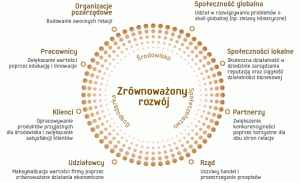An unexplained death of over 2 millions of bees prompted Greenpeace to support attempts to rebuild the population of insects in the municipality.
On the night of 4th to 5th October in yet unexplained circumstances, 2 to 3 millions of bees were killed in Pszczyna Dolna in the municipality of Wschowa (Lubusz Voivodeship). Stanisław Kowalczyk, the deputy mayor of Wschowa informed at Tuesday’s press conference that the reasons for this event are being investigated by a special commission.
Greenpeace wants to help to rebuild the population of bees in Wschowa. The organization is going to donate for the purpose funds raised through the popular campaign “Adopt a Bee”. Anyone who wants to take part in the action can adopt a bee by making a 2 zlotys donation through the campaing website. Collection of funds for the project aimed to rebuild the population of the insects in Wschowa will be conducted until November 18th.
Katarzyna Jagiełło from Greenpeace recalled that one-third of what we eat is related to the work of bees, and that in our climate zone more than three quarters of the plant is pollinated by bees and other pollinators.
– We (in Wschowa – PAP) rely on agriculture. The lack of cooperation and symbiosis between humans and bees, can lead to a serious crash, says Kowalczyk.
Kowalczyk stressed that the situation after the extinction of such a large number of bees is very serious for the local beekeepers and farmers, but also for the environment. Therefore, the case is being investigated by a special commission. The investigators have received samples from the hives and from the plants. The commission is checking if the extinction could be the result of an improper use of fertilizers and plant protection products. As Kowalczyk said, the first analysis will be known soon.
Jagiełło from Greenpeace stressed that the bees are often dying because of agricultural use of toxic pesticides. She recalled that the use of some of these types of measures has been banned by the European Union.
In 2013, the European Council introduced restrictions on the use of three neonicotinoid pesticides (clothianidin, imidacloprid and thiamethoxam) and Fipronil, which in the opinion of the European Food Safety Authority (EFSA), are dangerous to bees. According to a study by the EU laboratory, much more bees are being killed in northern Europe than in the south and east of the continent. According to the document, in Poland in the winter of 2012 and 2013, the ratio of bee mortality was 14.8%. The authors of the report studied 32 thousands of bee colonies in 17 European Union countries. They concluded that the mortality of bees is not as high as feared, and is between 3.5% and 33.6%. In 2013, most of the bees were killed in Belgium – 33.6% of the population, and least in Greece, Spain, Italy and Lithuania, where the percentage was lower than 10%.
Jagiełło added that for the extinction of bees are also responsible diseases and parasites, the climate change and the use of monocultures in agriculture.
The last year’s bee adoption campaign was supported by over 5 thousand people. With the money collected, 100 “hotels” for wild bees were built in 16 Polish cities.(PAP)






